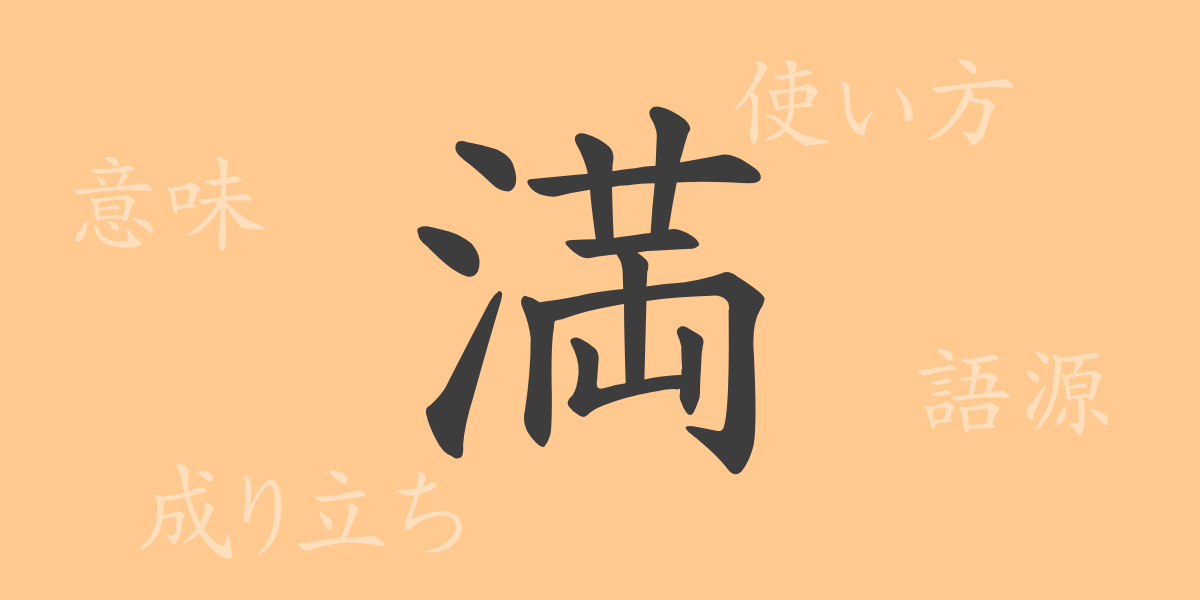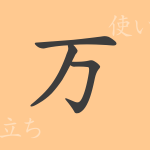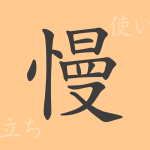The meaning embedded in a single kanji character is like a mirror reflecting the culture and history of its country. The commonly used kanji in Japan, “満” (man), is no exception. Frequently used in daily life, this kanji possesses rich expressive power and is used in many compound words and idiomatic expressions. In this article, we will delve into the origins, meanings, usages, readings, and expressions using “満” (man), uncovering its allure.
The Origins (Etymology) of “満” (man)
The kanji “満” (man) symbolically represents the image of water overflowing. Formed in ancient China, this character consists of the radical “氵” (sanzui), meaning water, and “㒼” (dai), an ideogram meaning “greatly.” Together, they convey the meaning “to be abundantly full, as if overflowing with water.” Over time, its meaning expanded from a literal sense of fullness to include metaphorical implications as well.
The Meaning and Usage of “満” (man)
“満” (man) means “to be full” or “to be satisfied.” It can also refer to a state where time or conditions are fully met. In usage, it frequently appears in terms such as “満点” (manten, perfect score), “満足” (manzoku, satisfaction), and “満腹” (manpuku, fullness), commonly used in both daily conversation and written language.
Readings, Stroke Count, and Radical of “満” (man)
“満” (man) has various readings in Japanese, but the primary on’yomi (Chinese reading) is “マン” (man), and the kun’yomi (Japanese readings) are “みちる” (michiru) and “みたす” (mitasu).
- Readings: On’yomi “マン” (man), Kun’yomi “みちる” (michiru), “みたす” (mitasu)
- Stroke Count: 12 strokes
- Radical: 氵 (sanzui, water radical)
Compound Words, Idioms, and Proverbs Using “満” (man)
There are numerous compound words, idioms, and proverbs containing “満” (man). For example, “満開” (mankai) refers to flowers being in full bloom, and “満場一致” (manjōitchi) means unanimous agreement, both symbolizing abundance and completeness. The proverb “手を拱いて天に満つ” (te o kundaite ten ni mitsu) warns against the foolishness of waiting for success without taking action.
Summary of “満” (man)
The kanji “満” (man) has maintained its rich meaning from its formation to the present day. Its usage in Japanese carries value beyond just a character, playing an important role in conveying culture and emotions through language. From this single character, we can sense a feeling of fulfillment and the complete state of things.

























